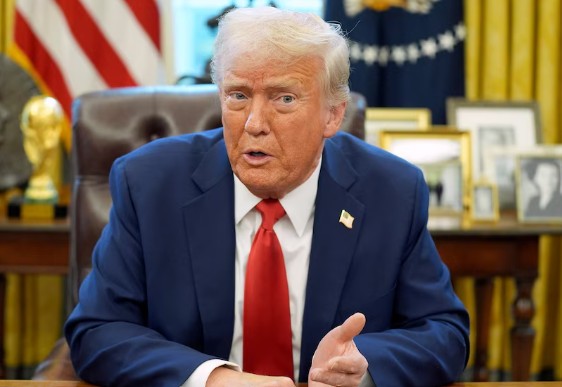Trump Prepares Major Tariff Expansion with Liberation Day Announcement

U.S. President Donald Trump is set to announce a sweeping expansion of tariffs on April 2, marking a bold move against long-time trade partners and allies. The tariffs, which Trump is calling “Liberation Day” tariffs, will impose reciprocal trade barriers in retaliation for what he perceives as unfair trade practices and barriers to U.S. exports.
In a statement ahead of the announcement, President Trump singled out several countries for their role in what he describes as “trade abuse.” These countries include the European Union, Mexico, Japan, South Korea, Canada, India, and China. Trump’s move will likely escalate tensions with these nations, many of whom have long enjoyed favorable trade relationships with the U.S.
“This is about fairness,” Trump declared. “For too long, these countries have taken advantage of America’s trade generosity. It’s time for them to pay their fair share. The days of one-sided trade are over.”
The tariffs are set to target a range of goods imported from these countries, and the move is expected to have significant ripple effects across global markets. Trump has made no secret of his desire to use tariffs as a negotiating tool, and the reciprocal tariffs are intended to force these countries to address trade imbalances and open up their markets to American goods.
The “Liberation Day” tariffs represent a major expansion of U.S. trade policy under Trump’s administration. These tariffs are expected to be some of the most aggressive measures taken by the U.S. government in recent years. The announcement follows Trump’s earlier actions on tariffs, including the trade war with China, which focused on intellectual property issues and the trade deficit.
Countries like Mexico, Japan, and Canada, while being traditional allies, have found themselves in Trump’s crosshairs, accused of erecting trade barriers that harm American producers. The European Union, a key trading partner, has also been named for maintaining tariffs on U.S. products, such as agriculture and technology, that Trump believes should be lowered. Even South Korea and India are under scrutiny for practices that Trump claims disadvantage U.S. companies in their domestic markets.
The move could further strain international relationships, particularly with nations that have relied on trade deals and agreements with the U.S. for stability and market access. However, Trump maintains that this is a necessary step to ensure that America gets a fair deal in its economic relationships.
With global supply chains already under strain, the expanded tariffs could result in increased costs for consumers, higher prices for businesses, and potential disruptions in trade. However, Trump’s administration has indicated that these tariffs will be used as leverage to force trade reforms, particularly in terms of reducing tariffs and non-tariff barriers that the U.S. claims are unfair.
As the announcement draws closer, many are watching closely to see how these tariffs will impact the global economy and whether they will lead to retaliatory measures by affected countries. Trump’s Liberation Day tariffs could reshape international trade dynamics, setting the stage for a new chapter in U.S. foreign economic policy.
Stay tuned for more details as Trump’s “Liberation Day” tariffs are unveiled on April 2.
